Affiliate links on Android Authority may earn us a commission. Learn more.
Samsung Galaxy S7/Galaxy S7 Edge tips and tricks
Published onMarch 26, 2016
One of the biggest complaints with Samsung’s TouchWiz UI a few years ago was the fact that the software package was very bloated, and packed with a slew of features and extras that, ultimately, didn’t prove to be all that useful. Samsung has toned down their software experience drastically over the last couple of versions of the UI, and with the latest iteration, the software experience is by far the best yet.
That certainly doesn’t mean that these smartphones are particularly lacking when it comes to software and hardware features however. The Samsung Galaxy S7 and Galaxy S7 Edge are making its way to consumers all over the world, and we’re here to help you out, with this roundup of our top tips and tricks to help you get the most out of your new smartphone. Let’s take a look!
Read more: Samsung Galaxy S7 and S7 Edge problems and how to fix them
#1 – Disabling the Flipboard Briefing screen
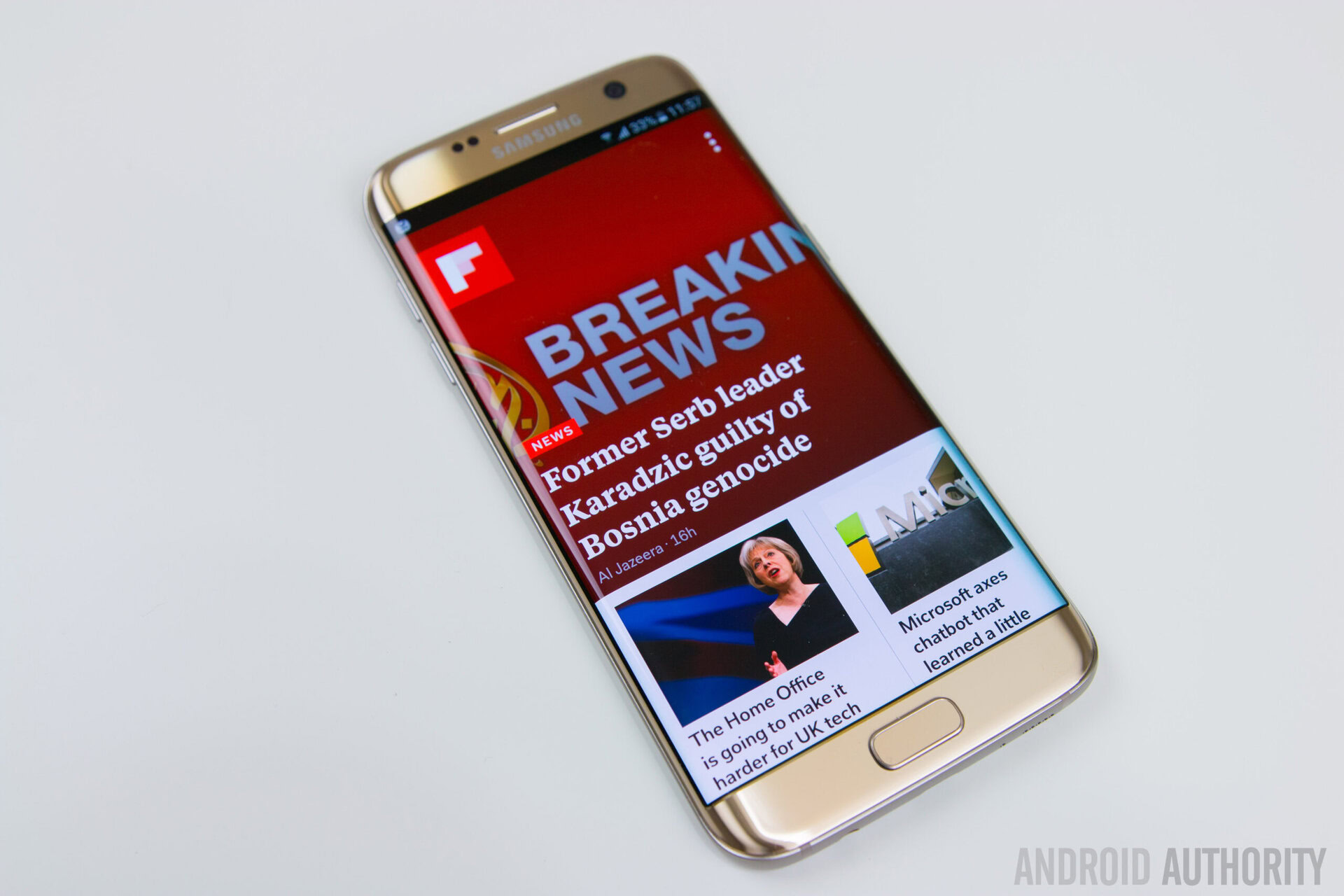
One of the big issues with the Samsung software experience has been the Flipboard Briefing screen, with a lot of stutter and lag seen when swiping to it. The lag isn’t as prevalent a problem with the powerful Galaxy S7 and Galaxy S7 Edge, and quite a few users do find this secondary screen useful, but if you are someone who, like me, don’t find it helpful, the good news is that it can be disabled easily.
All you have to do is long press on the homescreen and then swipe over to the Briefing homescreen, where you will see a toggle to turn it off. If you are looking to turn it back on again, just follow the same steps to do so.
#2 – Changing the screen grid size
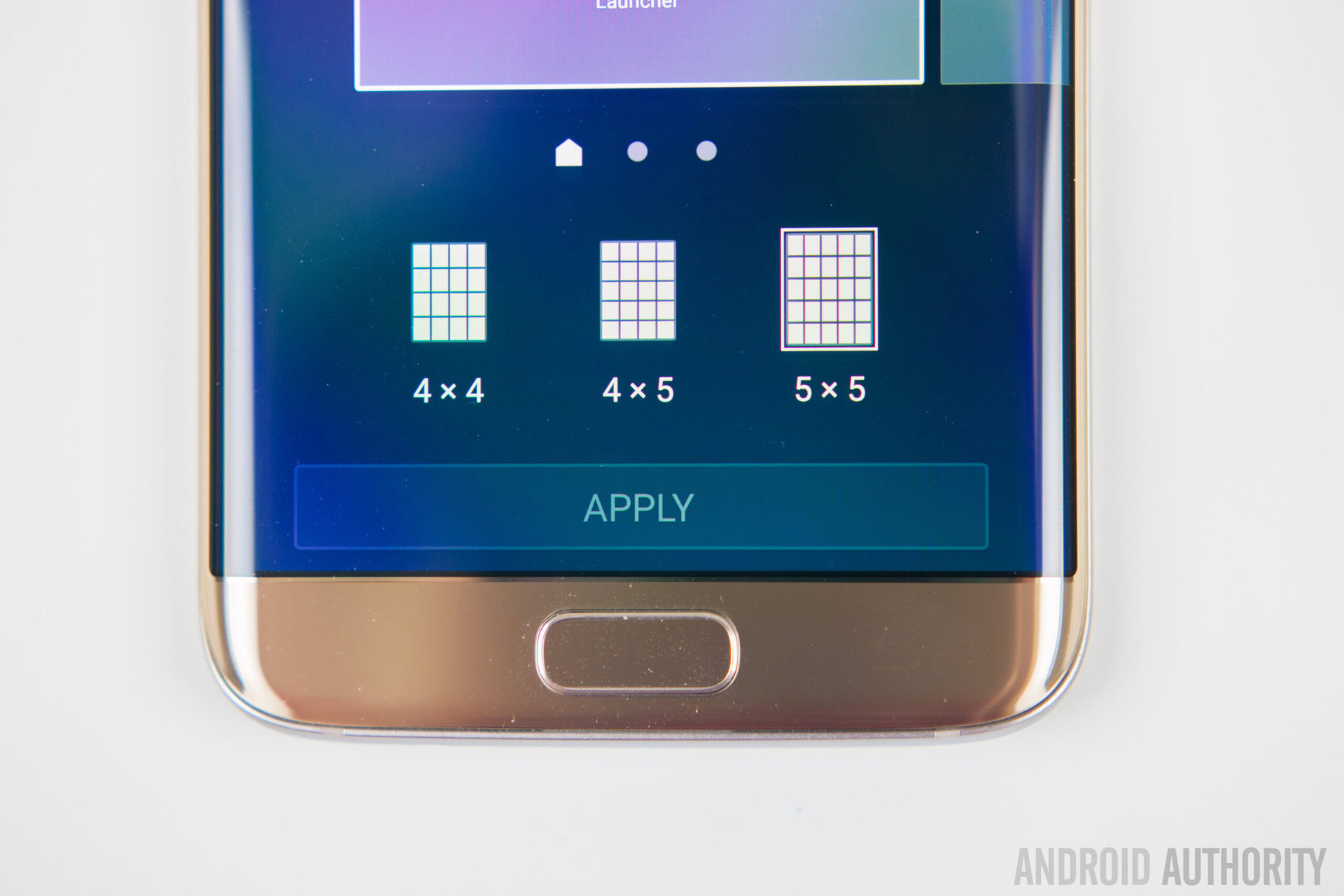
By default, the screen grid size is set to 4×4, which is a little bit cramped, and doesn’t allow you to take full advantage of the available display real estate. Once again, changing this setting is very easy. Just long press on the homescreen, and among the four options at the bottom, tap on Screen Grid. You can choose between 4×4, 4×5, and 5×5, and once you’re happy with your selection, tap on Apply. With the larger grid sizes, you will now be able to fit a lot more apps and widgets on the homescreen.
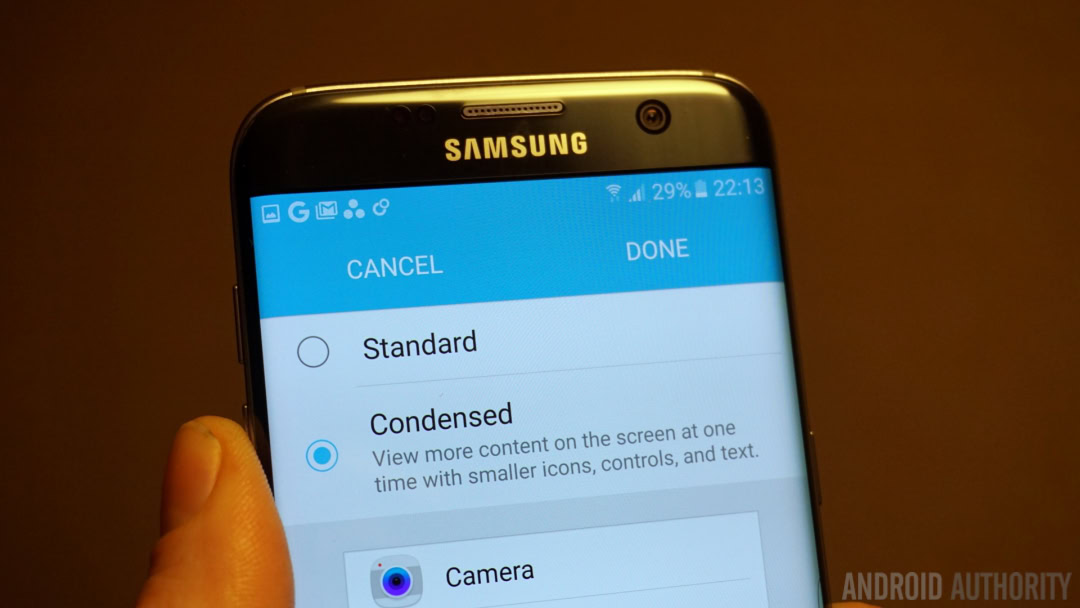
#3 – Camera quick launch
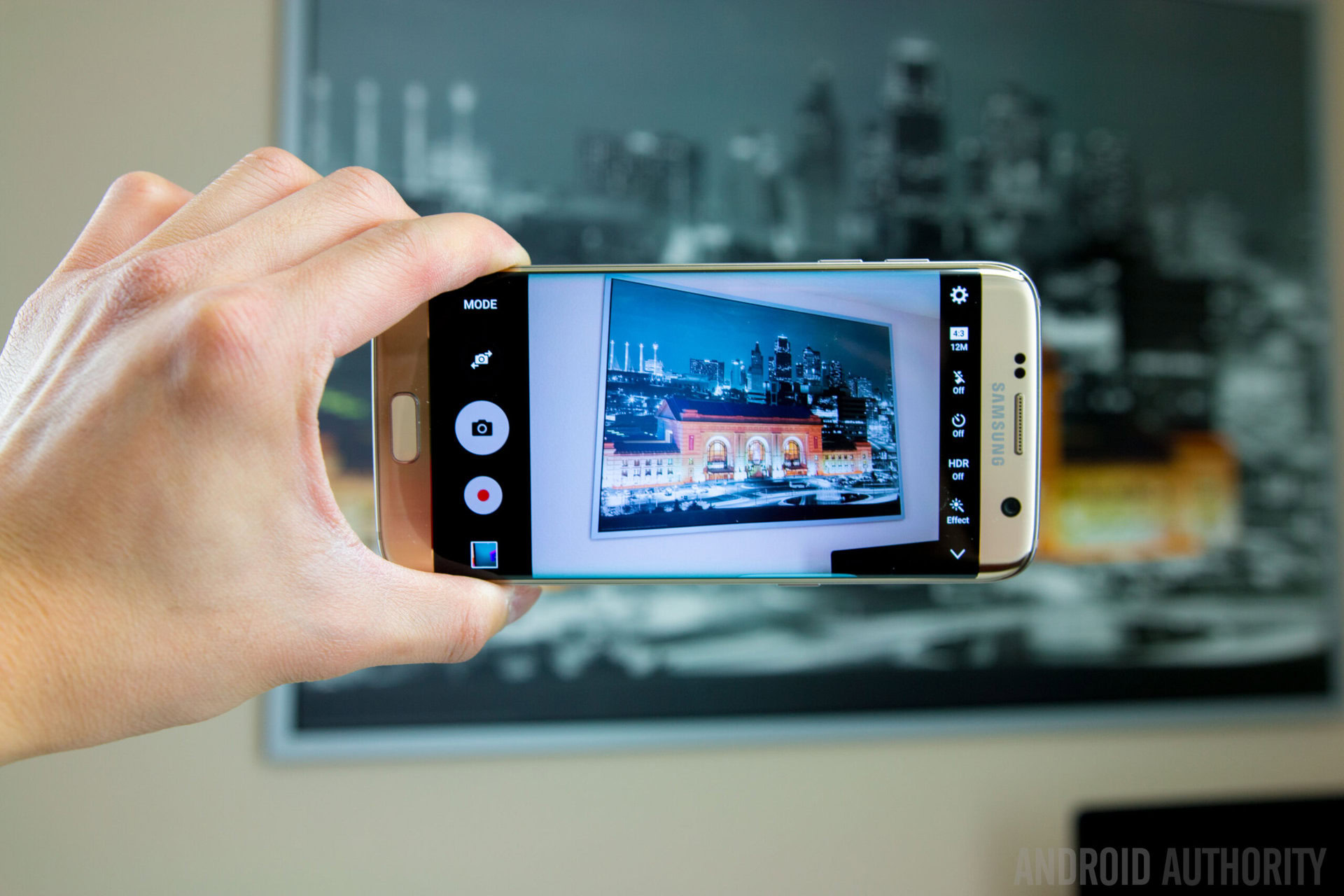
The camera quick launch shortcut was first introduced with the 2015 Galaxy S flagships, and is one of the best features Samsung has come up with. Anytime you are looking to launch the camera quickly, all you need to do is a double tap of the physical home button. This feature works regardless of which app or screen you are on, and even when the device is locked.
This is an extremely useful feature and actually removes the need for a Camera app icon on the homescreen as well. The camera quick launch shortcut should be enabled by default, but if it isn’t, go to Settings – Advanced Features, and make sure that the Camera quick launch option is toggled on.
#4 – One-handed operation
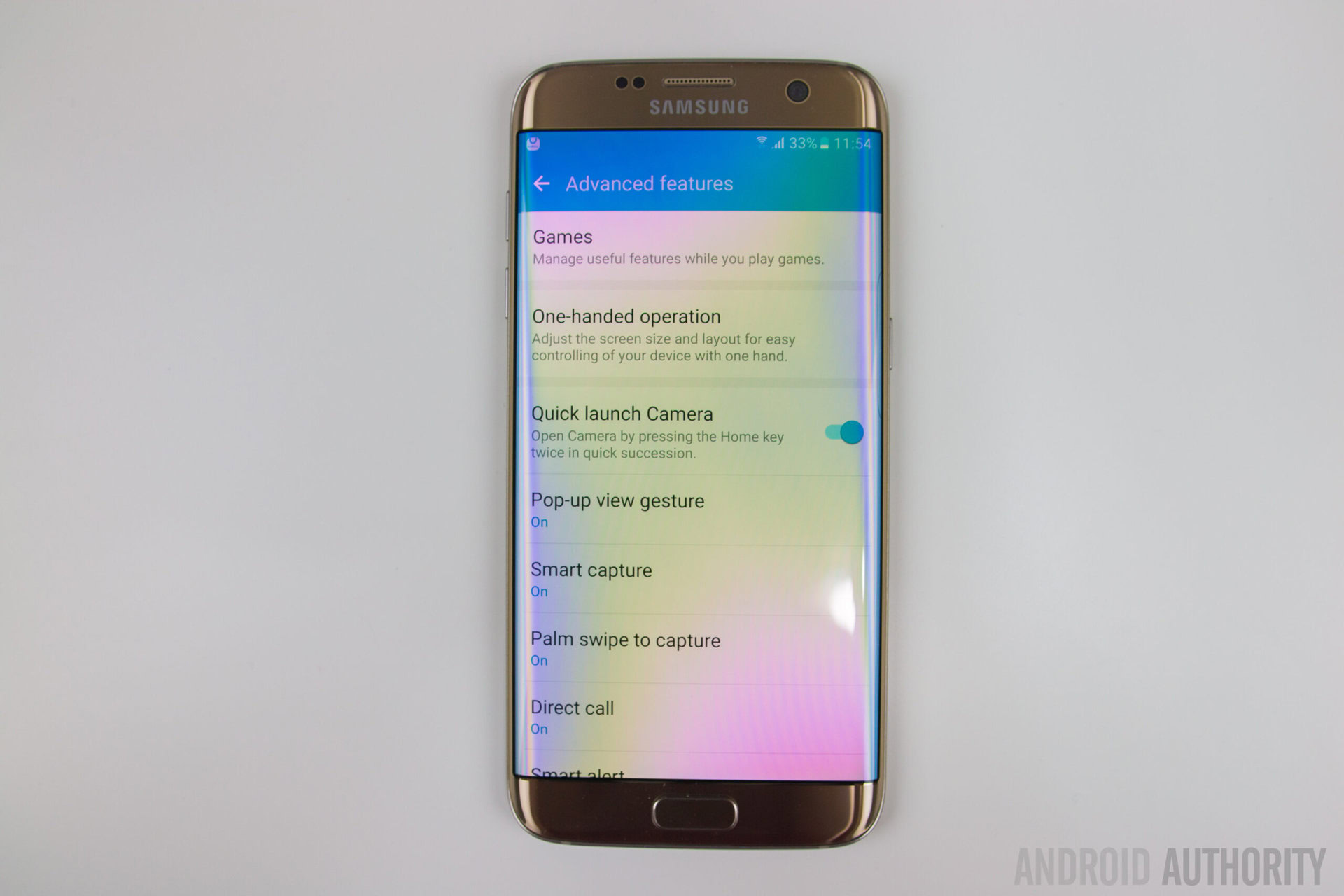
This feature allows you to shrink the interface down for easier one handed use, and while it may not be required with the relatively compact Galaxy S7, it may prove useful for owners of the larger Galaxy S7 Edge. To enable this feature, go to Settings – Advanced Features – One-handed operation, and you will see a toggle to reduce the screen size.
There is also a toggle for one-handed input as well, which will shift only certain apps, like the Dialer or Calculator, to one side of the phone, for easy one handed use. Once enabled, a triple press of the home button will launch this feature, and you will have the option to move it to left or right side, depending on which you prefer, as well as to go back to the full screen size.
#5 – Re-ordering the Edge panels
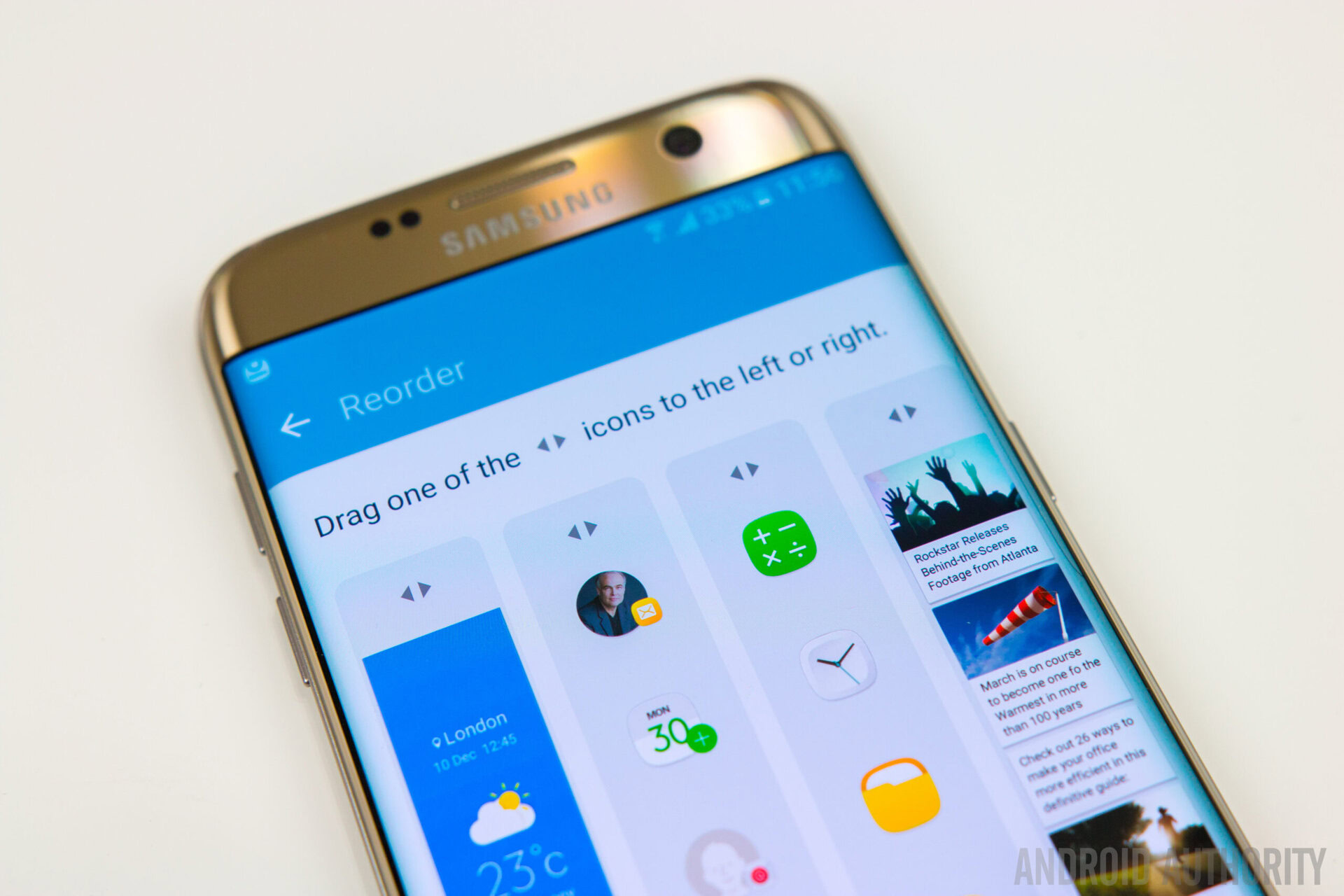
This tip is of course, specifically for owners of the Galaxy S7 Edge. With the new Edge UX, Samsung now allows for up to 9 panels to be used at one time, and that can be a lot of panels to swipe through when your searching for a particular piece of information. If there are some panels you use more often than others, such as looking up weather information, you can put those panels at at the forefront to make them easier to get to.
To re-order the panels, swipe open the Edge interface, tap the Setting icon, and select the Re-order button at the upper right. From here, re-ordering the panels is as simple as dragging and dropping. Now, your Edge panels will be exactly the way you want them to be.
#6 – Moving multiple applications to another homescreen
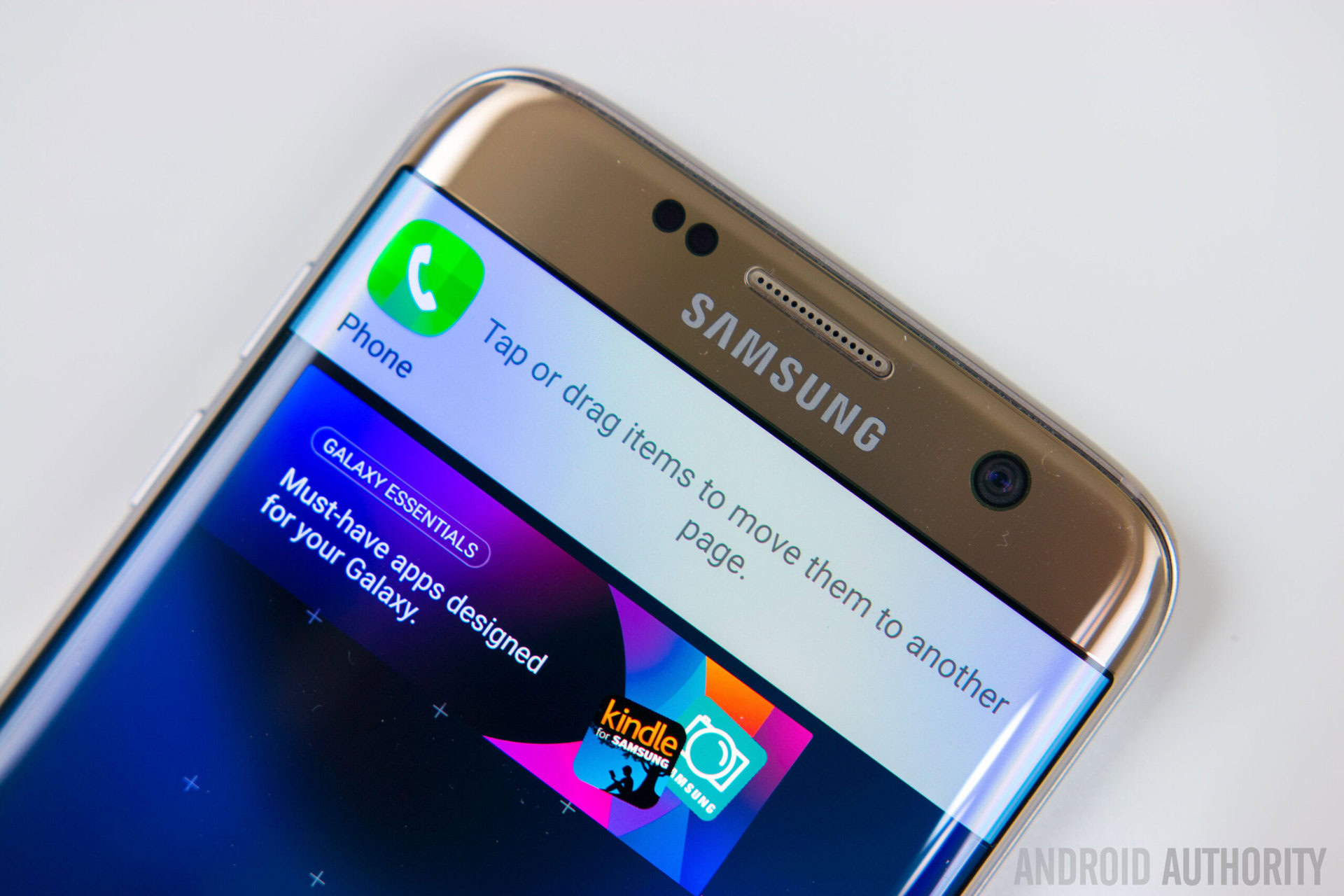
One of the most annoying things about Android when it comes to moving and organizing apps around the homescreens is that you can only move one item at a time. Luckily, Samsung has come up with a pretty elegant solution to help in this regard.
Just long press and hold an application, as you normally would when moving an app, and up top, you will see a Move Apps option appear. Once you’ve dragged an app to it, you will then be given the option to select 5 more applications to move. Once selected, swipe to any of the other homescreens, and simply drag them back down from the top.
#7 – Make the UI look like stock Android
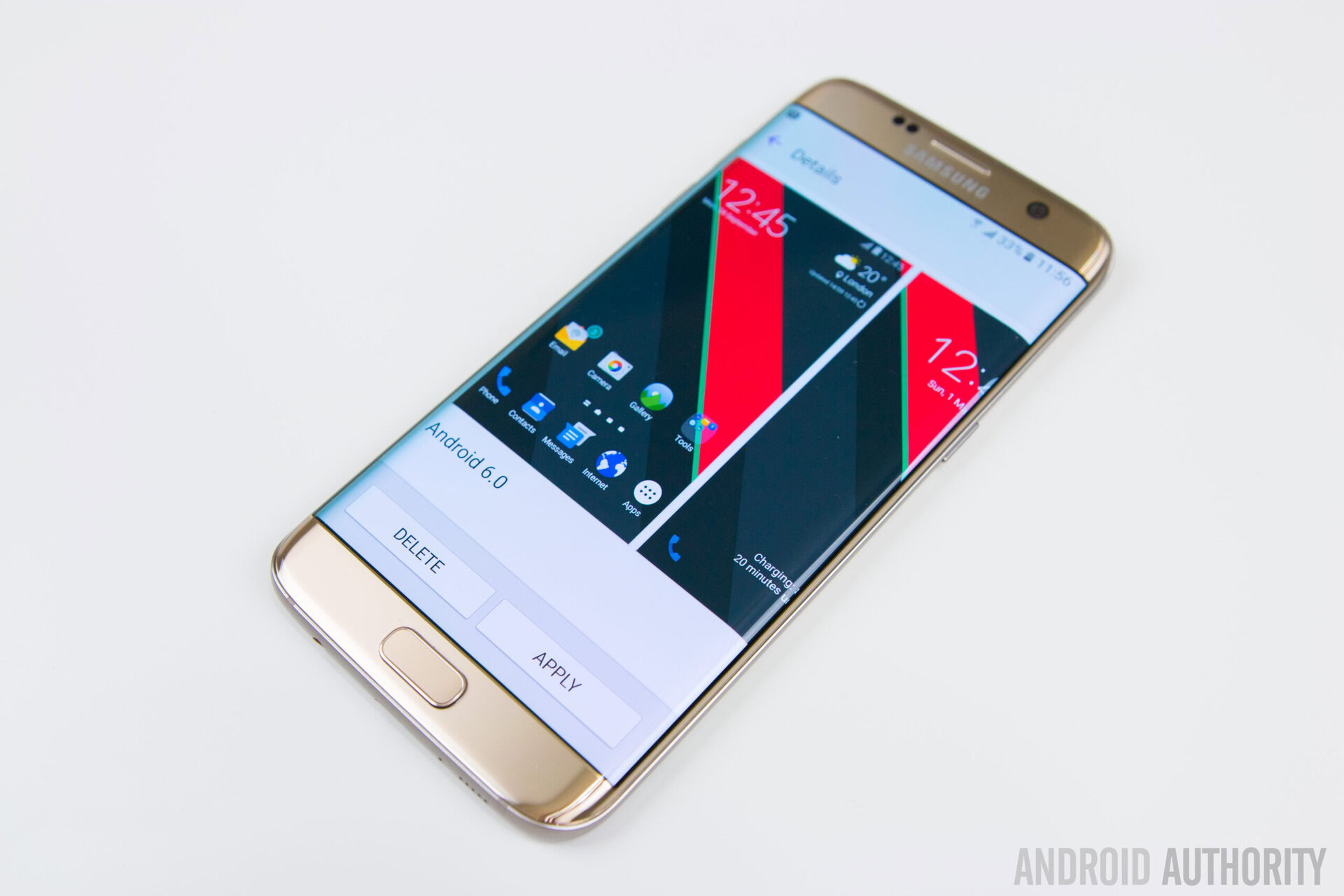
The latest version of the TouchWiz UI doesn’t look that bad, with a few aesthetically-pleasing changes made throughout, but if you’re still not a fan and are looking for a more stock-like interface, you can easily do so via the in-built Theme store.
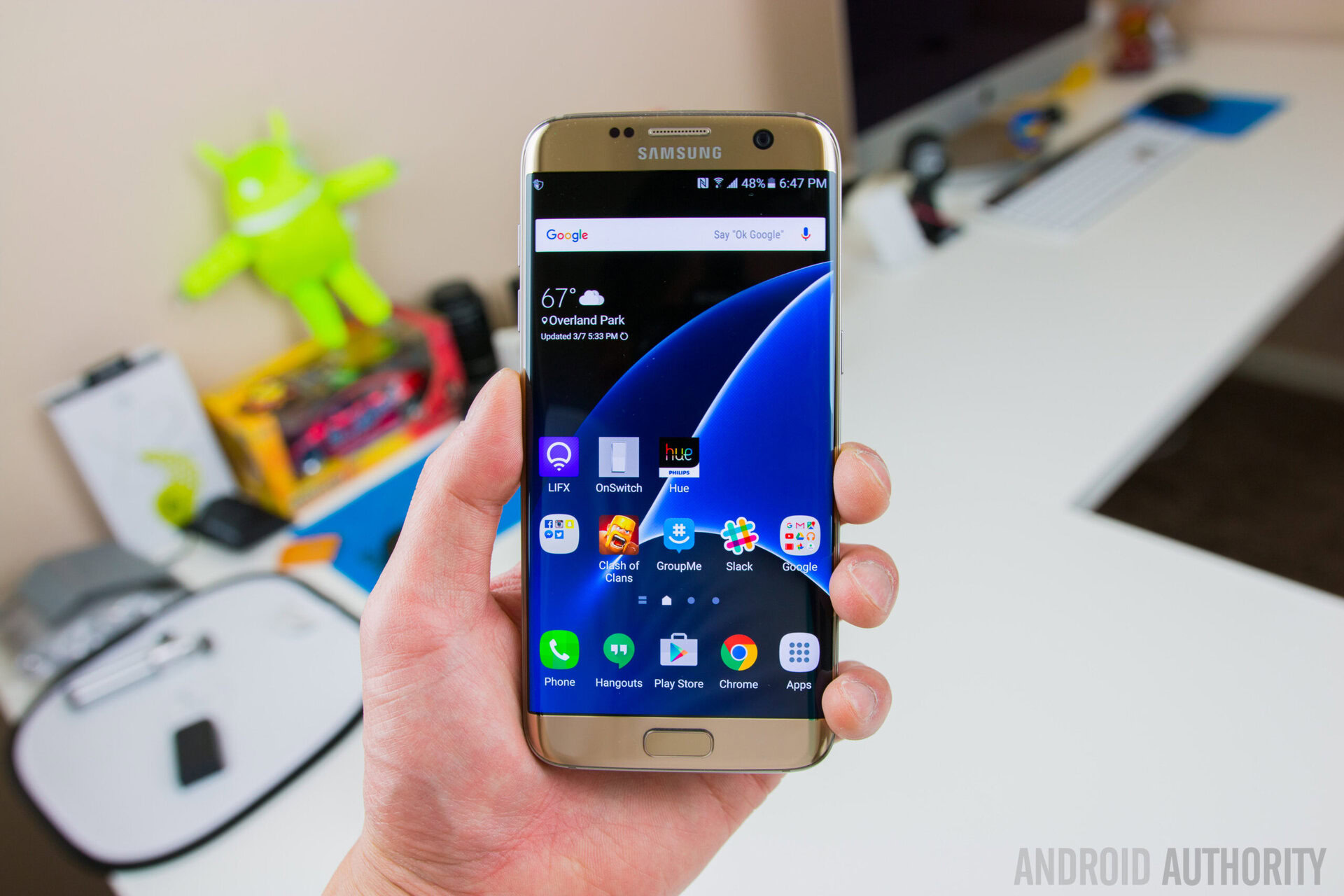
My favorite theme lately is the Android 6.0 Marshmallow theme, but there are plenty of really good ones to choose from. The easiest way to find them is to use the search term “Material,” and you will find a lot of themes that offer a stock Android look, with a majority of them also available for free.
#8 – Customizing the Always On display
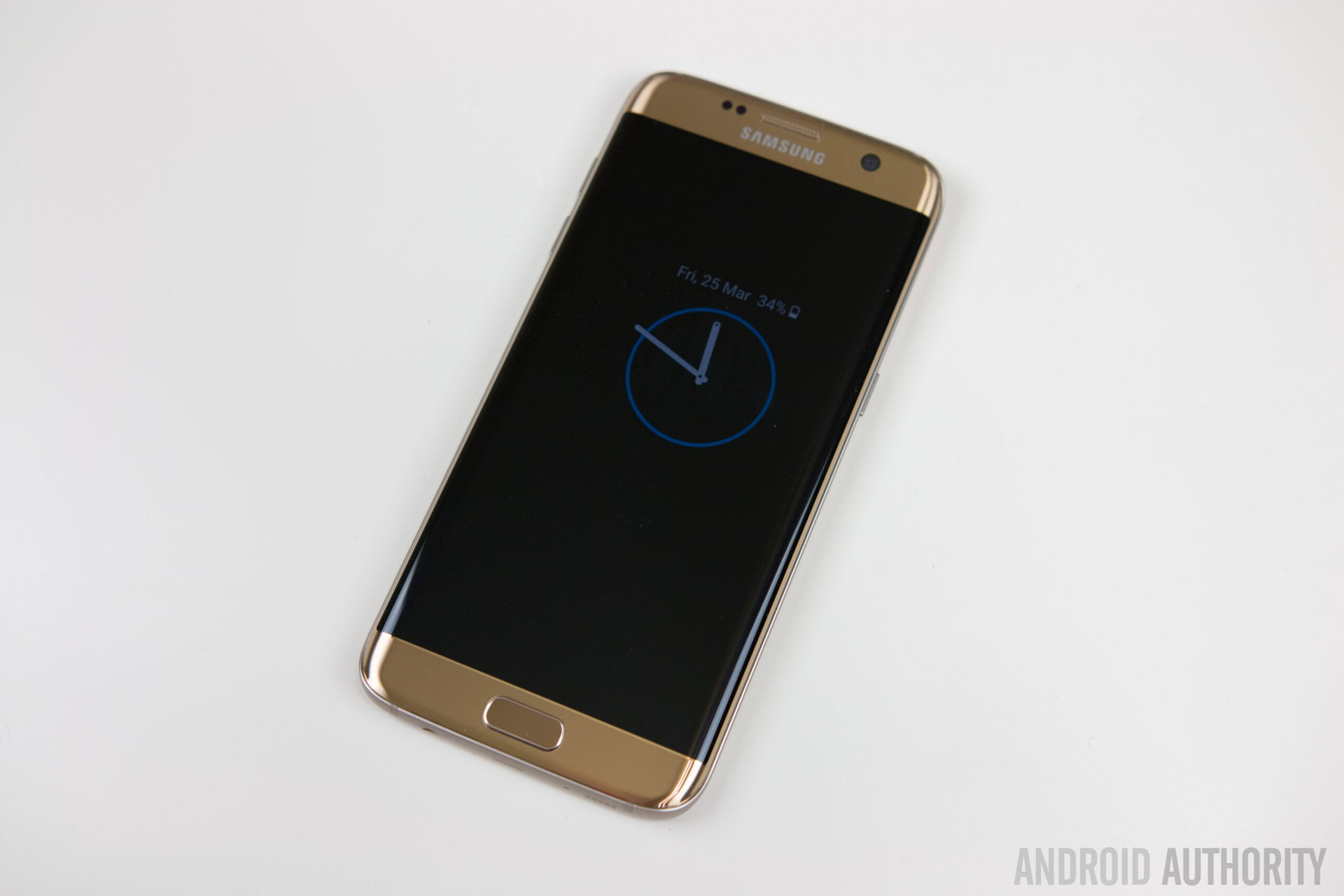
One of the new features introduced with the Samsung Galaxy S7 and Galaxy S7 Edge is the Always On display, and while its functionality is quite limited at the moment, Samsung does offer a few ways to customize it. You’ll find these options by going to Settings – Display – Always On display, where you have the option to choose between a clock, calendar, or image, to display.
If you want to customize the clock, for example, you can pick between several analog and digital clock styles, and you can also add a background image to the clock. Granted, there are only a few images to choose from here, but those are available do look nice, and hopefully, more options will be added in the future.
#9 – Turning off Pop-up view
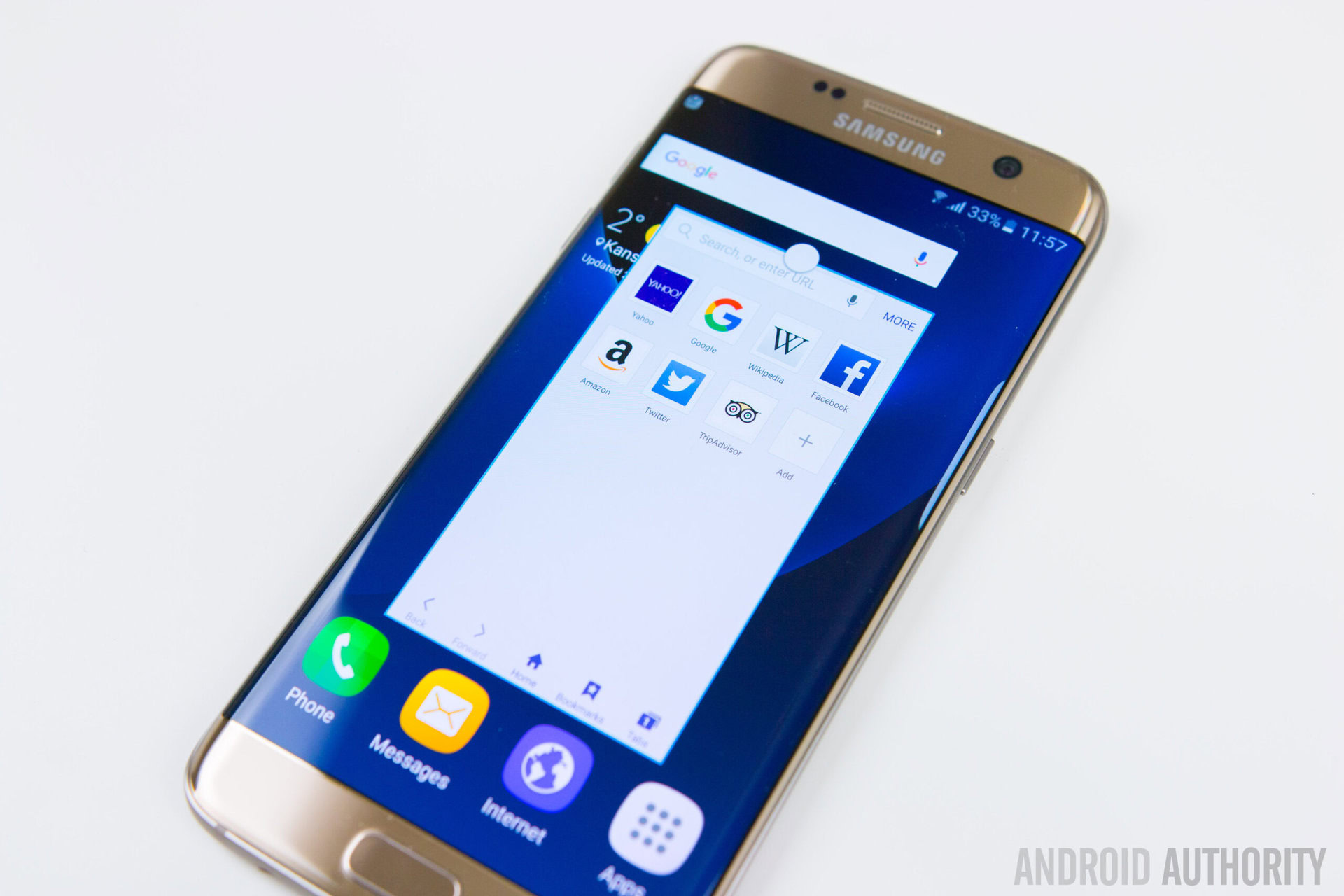
A feature that I’ve always found to be quite annoying is Pop-up view. This feature lets you shrink an app into a floating window that you can manipulate and move around by swiping inwards from the top left or right corners. However, you will often find this feature being triggered when you’re simply trying to pull down the notification shade.
The good news is that with the Galaxy S7 and Galaxy S7 Edge, you now have the option to disable this feature. Go to Settings – Advanced features, tap on Pop-up view gesture, and turn it off.
#10 – Keeping the screen turned off
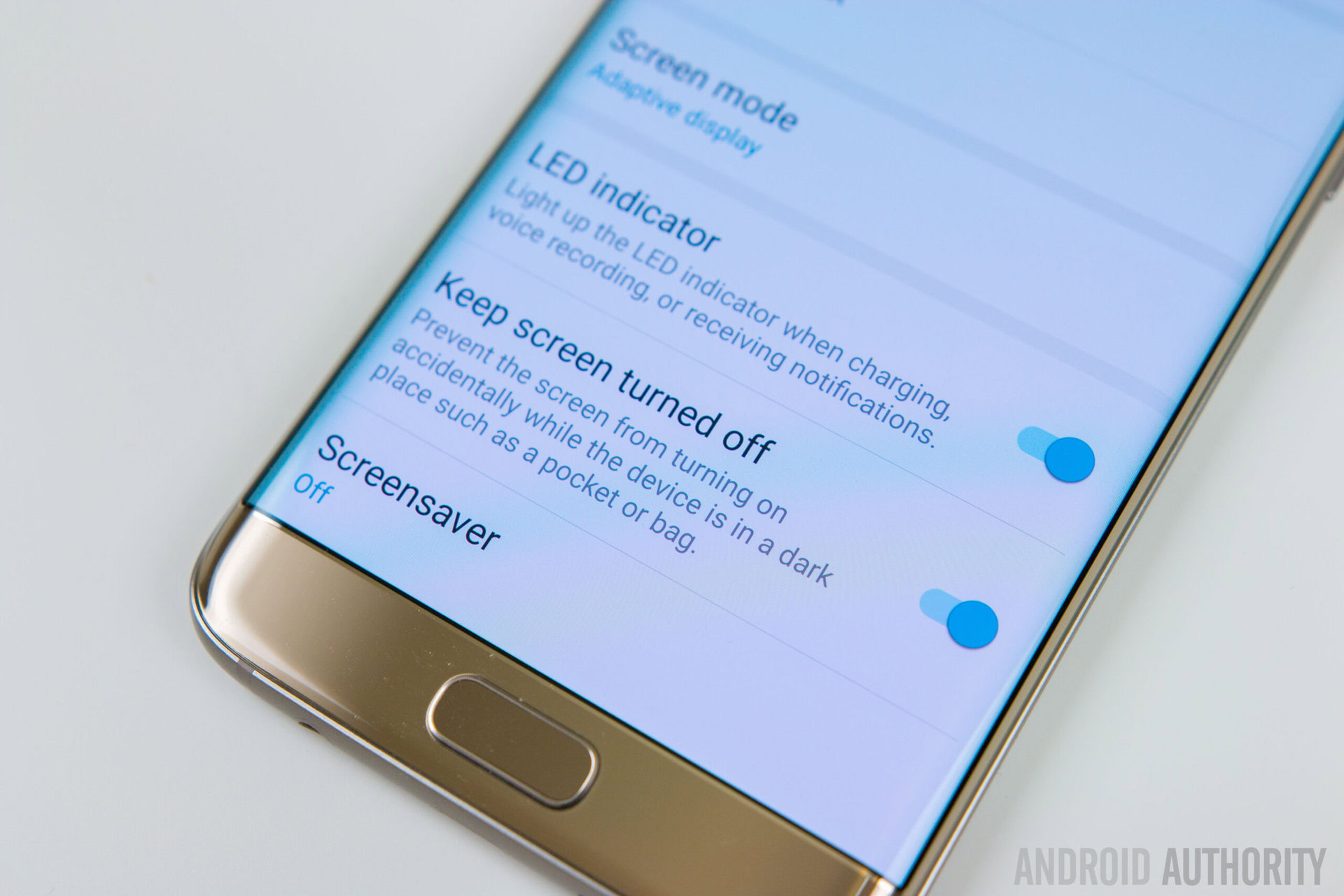
The last and final tip is with regards to how to keep the screen from turning itself on when you don’t want it to. With both smartphones coming with physical home buttons, they can be prone to accidental presses from getting tossed around in a bag, or even while in your pocket, which can ultimately waste a lot of battery life, with the screen turning on constantly.
Go to Settings – Display, and you will see an option for keeping the screen turned off. Once you’ve enabled this feature, your phone will never accidentally turn itself on in your pocket, bag, or any other dark environment.
So there you have it for this roundup of some useful tips and tricks to help you get the most out of your Samsung Galaxy S7 or Galaxy S7 Edge. If you feel like there is something we’ve missed out on, don’t forget to mention it in the comments section below.